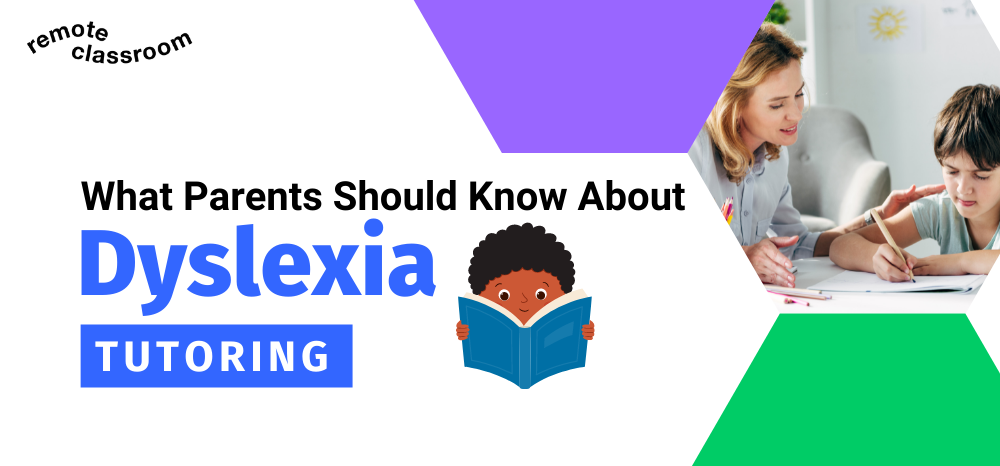As a parent, what should you know about dyslexia tutoring?

Dyslexia is a learning disability via iStock.
Dyslexia is more common than you may know.
According to Albert Einstein,
“Everybody is a genius. But if you judge a fish by its ability to climb a tree, it will live its whole life believing that it is stupid.” – Albert Einstein.
Dyslexia is more common than you may know. But just because your child has dyslexia, that doesn’t mean that they are not intelligent.
Dr. Sally Shaywitz, co-director of the Yale Center for Dyslexia and Creativity, estimates that 80 to 90 % of children who struggle with learning disorders have dyslexia. Dyslexia affects one in five kids–and that’s about 20% of the entire population.
Read more: What is Dyslexia?
However, it is a case to case basis. It may look different in each student. Some may read a little slowly, while some may be poor spellers. Some may read accurately, but have trouble understanding what they just read. It can be mild in a student, while severe in another.
Forging a learning path starts from home.
Knowing that your kid has dyslexia should not discourage you. In fact, it should encourage you to be an integral part of their learning. Being extremely supportive in your kid’s early education can draw a big difference between your child having a successful academic career and them failing to meet his or her potential.

Managing dyslexia at home via iStock.
You can begin by reading storybooks slowly and helping them recognize letters and numbers one.
Read our guide in Dealing with Dyslexia At Home here.
It has more advantages than disadvantages.
Too often, people often disregard that dyslexia has its own advantages. Recognizing that means recognizing that each person has their own weaknesses and strengths. While people generally focus on the deficits associated with dyslexia, there are also areas where dyslexic people are more capable than the average person.
People with dyslexia often have their right brain more active than the left. Studies show that kids with dyslexia often display:
-
-
The ability to understand the bigger picture.
-
Being able to detect ambiguity and inferential reasoning.
-
The capacity to be inventive and resourceful.
-
Having better aptitude at problem-solving.
-
Being more skilled at art and sports.
-
So in dealing with your child, always be considerate of their weaknesses. In the end, if they find that they are celebrated with their small wins, they develop confidence and self-reliance.

Managing dyslexia starts at home via iStock.
They should be accommodated.
While dyslexia is often lifelong and incurable, there are exercises that help them manage their condition.
Children who have dyslexia are entitled to accommodations that enable them to learn better despite their challenges. It is said by Dr. Shaywitz that “Dyslexia robs a person of time and accommodations give the time back to them,” which may include:
-
Giving them extra time on tests.
-
Allowing them to work in a quiet space to work.
-
Permitting them to record lectures they can rewatch.
-
Giving them option to give verbal, rather than written, answers (when appropriate).
-
Exempting from foreign language learning.
-
Reading exercises with Audiobooks.
There is no cure for dyslexia; nevertheless, people can successfully learn to read when provided with evidence-based intervention, like the Orton Gillingham approach. Although they may learn to read and write, they may still have difficulty with various aspects of reading and writing later in life.
Read more: 7 Tips to Help Boost Your Child’s Comprehension with Reading
It is okay to ask for help.
While as a parent, you may want to do everything to help your child, it is okay to ask for an extra hand. Know that you and your child are never alone in this. Through different ways, you can relieve yourself and your child from unwanted stresses.
Here are some ways to aid you in your journey:
-
Getting them treatment options
-
Joining support groups
-
Researching for online resources
-
Getting them Individualized Education plans
-
Hiring a reading specialist or tutor

Getting through dyslexia via iStock.
In the end, when we all work together, we can get through problems.
Remote Classroom adjusts to your child’s specific needs, making sure they express their own creativity and gifts through a wide variety of classes that will keep them inspired to learn more. We offer live online lessons on Arts, Coding & Tech, Health & Wellness, English, Maths, Science & Nature, Music, and Life Skills. Send us a message on Facebook to learn more about getting your kids set up for homeschooling.

